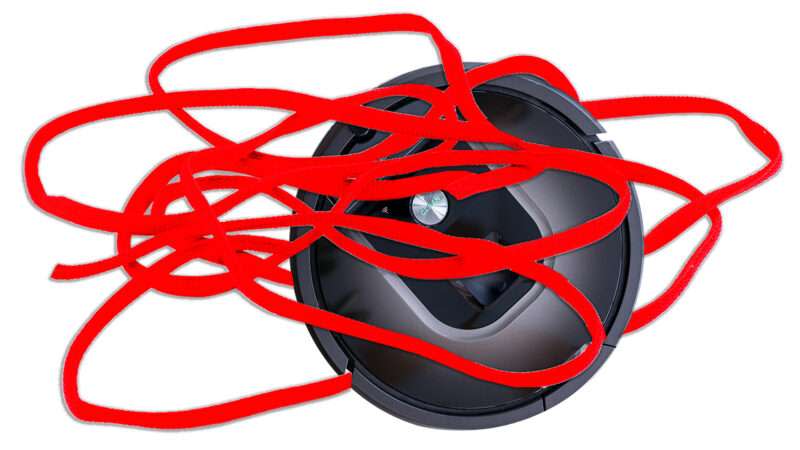Politicians Helped Kill Amazon's Roomba Deal

In January 2024, Amazon terminated its agreement to acquire iRobot, the company that manufactures the Roomba robot vacuum. That company then laid off nearly one-third of its work force. In a joint statement, the companies said they saw "no path to regulatory approval in the European Union." But busybody American lawmakers also helped scuttle the deal.
Under the August 2022 acquisition agreement, Amazon intended to purchase iRobot for $1.65 billion. At that time, the U.S. Federal Trade Commission (FTC) and the European Commission separately began investigating the proposed merger.
In November 2023, the European Commission sent Amazon a Statement of Objections, saying the deal "may restrict competition in the market for robot vacuum cleaners." Since iRobot sells Roombas alongside competitors in the Amazon marketplace, the Europeans worried that in the event of a merger, Amazon "may have the ability and the incentive to foreclose iRobot's rivals."
Rather than offer concessions to any of the European Commission's hypothetical concerns, Amazon canceled the deal; the same day, iRobot announced an "operational restructuring plan" under which it would lay off 350 employees—31 percent of its workers. While Amazon would pay a $94 million termination fee for canceling the deal, iRobot (which took out a $200 million bridge loan to cover operating costs as the FTC and E.U. investigations dragged on) announced that it anticipated a loss of as much as $285 million in 2023.
While Amazon and iRobot blamed Europe for the deal's failure, busybodies in the U.S. government also contributed. Lawmakers—led by Sen. Elizabeth Warren (D–Mass.)—penned a letter to FTC Chair Lina Khan in September 2022, advocating that "the FTC should use its authority to oppose the Amazon–iRobot transaction." The letter cited "Amazon's history of anticompetitive practices" and its "ongoing history of anticompetitive mergers to increase their monopoly power" as sufficient reasons for the FTC to invoke its antitrust enforcement authority and forestall the deal.
Margrethe Vestager, the European Commission's executive vice president in charge of competition policy, said in a statement after the deal fell apart that "during our investigation, we have been in close contact with the US Federal Trade Commission." Nathan Soderstrom, the FTC's associate director for merger analysis, said the FTC was "pleased" the acquisition would not go forth.
One assumes Warren was pleased as well (though her office did not respond to a request for comment), as she had opposed the merger from the start—though since iRobot is based in Bedford, Massachusetts, a sizable portion of the 350 laid-off workers are likely to be her constituents.
The post Politicians Helped Kill Amazon's Roomba Deal appeared first on Reason.com.
